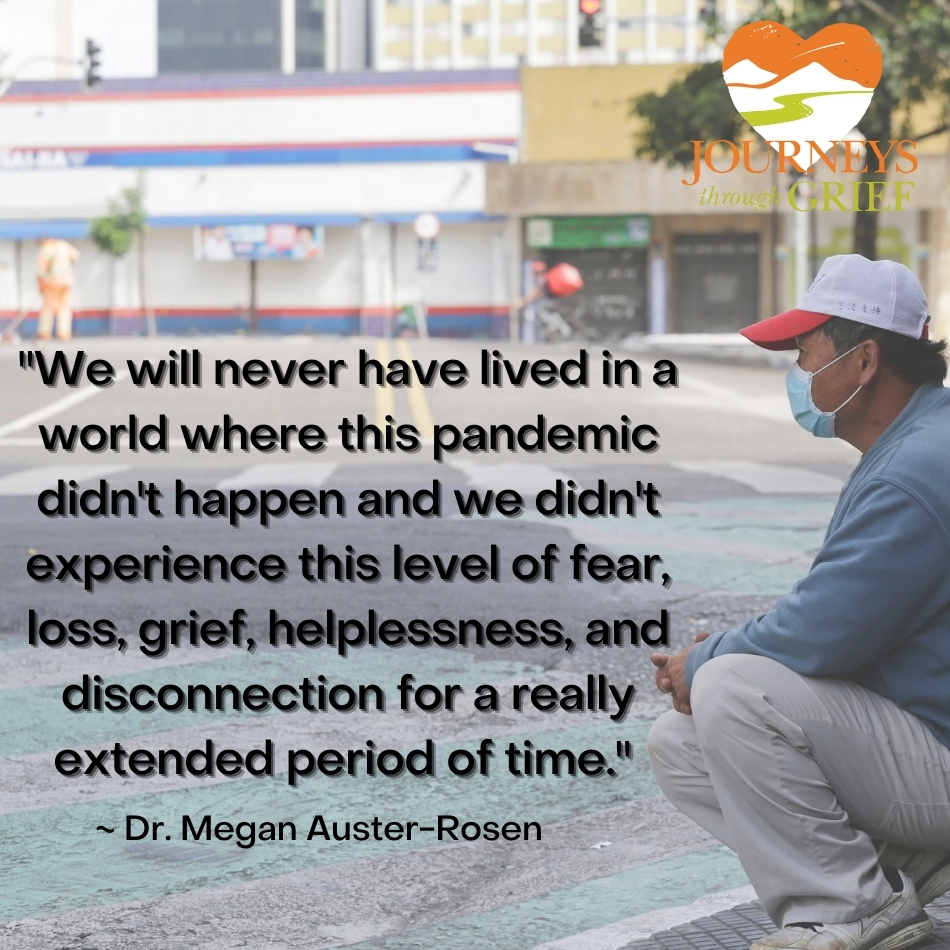
The Pandemic and Trauma
Face it: we’ve all been through a lot over the past year and a half. And it’s not like we’ve experienced anything like this before. The last major pandemic was in 1918, over a century ago. Since March 2020, we’ve had businesses and schools close, job losses, and major changes to how we socialize. For those who lost loved ones, funeral services were either postponed or done virtually. It has certainly taken a huge toll on us physically and emotionally.
There is some hope on the horizon. The vaccine is having a positive impact on the numbers of those infected either by eliminating or reducing the harmful effects of the virus. Death rates are down and hospitals do not have to open trauma centers to accommodate patients. Granted, we are not out of the woods by any stretch, and the pandemic is not over. So how do we cope? How do we keep going when we don’t even really know how long it will be until life is normal again?
An article by Victoria Pelham on www.Cedars-Sinai.org titled “Coping with the Trauma in the Wake of COVID-19,” addressed some steps we all can take to help our physical and emotional well-being during these still difficult times.
Among Pelham’s suggestions:
Be gentle with yourself
Pelham states that because the pandemic has gone on so long, many people have made adjustments and adapted to a new way of life. Things that we all did pre-pandemic such as handshakes and hugs may feel different or possibly scary. You should be free to experience these feelings without being too tough on yourself. Proceed slowly.
Be Mindful
In previous Reflections blogs, we’ve discussed mindfulness, a practice that focuses on being in the present moment and accepting of our circumstances. Much of what is happening is out of our control. Staying focused on our health and feelings while addressing our personal needs in our current situations helps us make it through difficult times.
Be as fearless as possible
It’s hard not to feel anxious and fearful when you watch, read, or listen to the news. Pelham notes that according to the Kaiser Foundation, approximately 40% of adults have reported symptoms of anxiety, up from 11% in 2019. If you are feeling extreme anxiety, it may be helpful to consult with a medical professional.
Be free to grieve
At Forest Lawn, we know that funeral services play an important role in the grief process. During the pandemic, people who faced the loss of a loved one had to deal with all the emotions of the loss in new ways.
“We will never have lived in a world where this pandemic didn’t happen and we didn’t experience this level of fear, loss, grief, helplessness, and disconnection for a really extended period of time,” said Dr. Megan Auster-Rosen, a clinical psychologist at Cedars-Sinai.
Forest Lawn has and will do everything within its power to provide safe avenues for our families to grieve in meaningful and significant ways. This includes keeping our grounds open for gravesite visitation, practicing sanitation at our facilities, and offering helpful seminars and resources such as “Making It Through the Holidays,” “Lights of Remembrance,” and “Understanding Grief” seminars. We have also launched our Journeys Through Grief website (www.JourneysThroughGrief.com) and Facebook page, “Journeys Through Grief as ongoing support for those working through grief.
To learn more about other grief resources offered by Forest Lawn, please visit https://forestlawn.com/grief-resources/.
For further reading, visit https://www.cedars-sinai.org/blog/coping-covid19-trauma.html.
